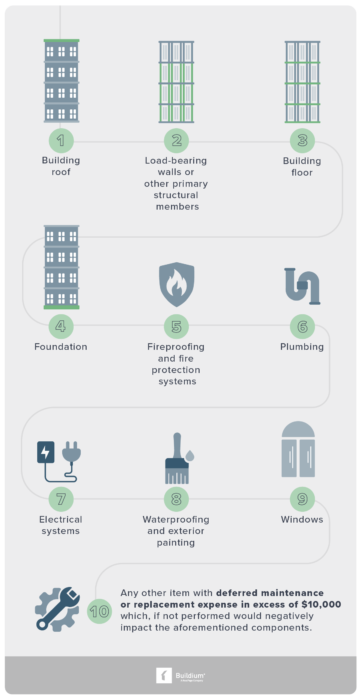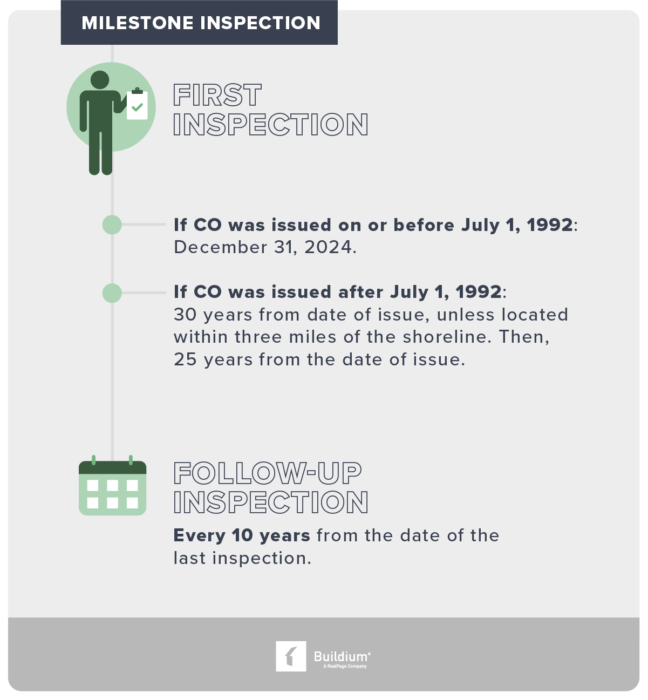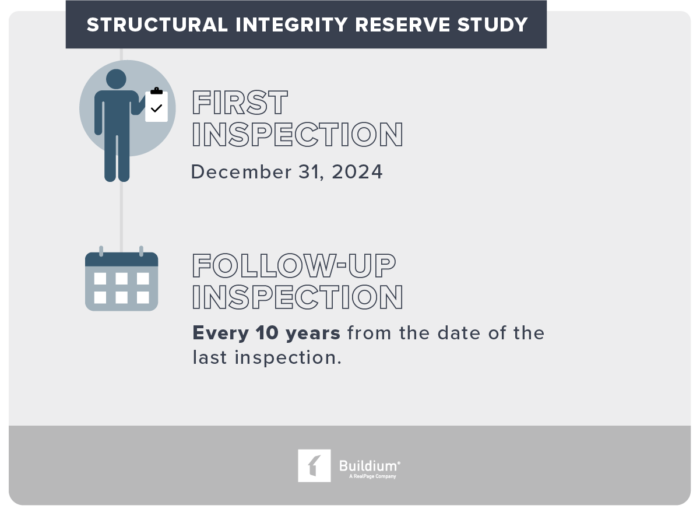On June 24, 2021, Champlain Towers South, a condo building in Surfside, Florida collapsed, killing 98 people. Nearly one year after the tragedy, the Florida state government has passed a law that is aimed at making life in similar communities safer.
Chart of Accounts
Want clearer, cleaner books? What about a more useful view into your properties or just easier accounting in general?
Get the GuideThe passage of this law heralds big changes for condo associations, their board members, and property managers alike in The Sunshine State. It has prompted other states to consider whether they need similar mandates. Here’s a closer look at what associations and property managers, both in and out of Florida, should know about this new legislation.
Florida’s New Structural Safety Laws: What Do They Include?
Before we can start discussing how to prepare for the new laws, it’s critically important to get some clarity around them. With that in mind, here’s a closer look at Florida’s House Bill 5-D and the impacts that it will have on condo associations in the state.
Milestone Inspections
Condo buildings with three or more stories are now subject to “milestone inspections,” meant to ensure their structural safety. This inspection must be completed by a licensed architect or structural engineer.
During the inspection, the architect or structural engineer must first complete a “Phase 1” inspection of the building, which consists of a visual inspection and a qualitative assessment of the building’s condition, documented in a written report. That report must be:
- Given to both the associations and any local building official who has jurisdiction over the association
- Distributed by the association to all unit owners (renters are also entitled to view the findings)
- Displayed in a conspicuous place on the property and on the association’s website, if it has one
- Maintained in the association’s records for at least 15 years
If any structural deterioration is noted during that first inspection, then an additional “Phase 2” inspection is required. “Phase 2” includes any supplemental testing that is required in the initial inspection report.
Structural Integrity Reserve Studies
Separate from the milestone inspection report, under the new law, associations must also conduct regular structural integrity reserve studies of the following elements of the property:

A thorough visual inspection of the building must be performed by an architect or engineer. However, other “qualified” individuals, such as plumbers or electricians, may complete the other sections of the report.
Once a structural integrity reserve study has been completed, the report must be made available to all unit owners and renters, posted on the association’s website, and maintained in the association’s records for at least 15 years.
How Are Condo Associations Affected?
Now that you have a better understanding of what the law entails, here’s a closer look at the ways in which condo associations are going to be impacted by its passage.
New Reporting Requirements
The new law authorizes Florida’s Division of Condominiums, Timeshares and Mobile Homes to enforce the milestone inspection and structural integrity reserve study requirements. As a result, all associations with buildings over three stories tall must report to them no later than January 1, 2023.
Specifically, they must share the following information:
- The number of buildings on your property that are three stories or more
- The total number of units in all such buildings
- The addresses of all such buildings
- The counties in which all such buildings are located
This information will be distributed to local county officials in advance of the December 31, 2014 deadline for enforcement. The new law gives local building officials the authority to establish timelines around how long associations have after receiving the report to start marking the repairs. They’ll also have the authority to assert penalties for noncompliance.
New Structural Inspections Timeline Requirements
While the specific structural inspection requirements are outlined above, timing both types of inspections—the milestone inspection and structural integrity reserve study—correctly will be crucial. Condo boards and associations should keep the following deadlines in mind:


New Reserve Requirements
However, perhaps most importantly of all, this new law will impact the amount of money that boards must keep in their reserve accounts for repairs, The existing law requires that boards hold reserves earmarked for major repairs.
This new law strengthens those existing ones by maintaining that board members may not vote to waive or reduce the amount held for items mentioned in the structural integrity study.
While this may not sound like a large change, it vastly increases the amount of reserves that a board has to have on hand at any given time. This is especially true for older buildings that are more likely to be in need of repairs. It may strengthen the likelihood that your association will see a fee increase or special assessment in the near future.
Preparing to Comply With New Structural Safety Laws
Whether or not your state has specific structural safety laws on the books, here are concrete steps you can take to make sure that your association stays compliant and give both residents and homeowners greater peace of mind:
- Register with the Division of Condominiums, Timeshares, and Mobile Homes: If you have buildings that are more than three stories tall on your property, your association will have to register with the division overseeing the new condo law. Assign someone to collect the necessary information and to contact the appropriate officials.
- Schedule your inspections with your local building authority: Once your association has been registered, your local building authority will likely be in charge of carrying out your inspections. Make sure that you have a firm understanding of your association’s timeline for compliance. Then, have someone call the building authority to schedule inspections that fall within that timeline.
- Carefully evaluate your reserves: If your association’s reserves fall short of the new requirements, start planning for how you’ll boost them before any deadlines. Look carefully at your current budget. Then, if necessary, have frank discussions about any fee increases or special assessments that may be necessary to get your numbers where they need to be.
- Plan for the distribution of all reports: The last piece of this is to create a plan for how you’ll display and distribute your inspection reports once they’ve been completed. Sending an email or mailing printed copies may be sufficient for notifying existing residents. However, a software solution like HomeWiseDocs can help you store and distribute these documents for refinancing and resale purposes.
Learning from Florida’s New Structural Safety Laws
What happened in Surfside may have been a tragedy, but Florida’s legislature has taken steps to ensure it never happens again. While no other states have similar laws on the books just yet, what happened did prompt New York senators to propose a bill requiring periodic building inspections for condos in their jurisdiction. In other states, independent voices have called for similar reform.
There’s a lot to learn from Florida’s new legislation. Schedule inspections and reserve studies at regular intervals and used as tools in financial planning. Consider reserve requirements when discussing fee adjustments and special assessments. Above all, maintaining the structural integrity of the building should be of paramount importance, even when it comes at an unpopular price.
If you can keep all these factors in mind as you work with your board and the residents in your community, you’ll have an association that’s prepared and in good stead for the long haul.
Read more on Associations

